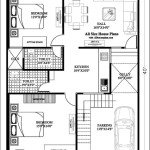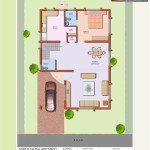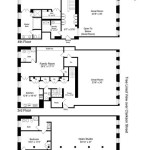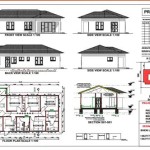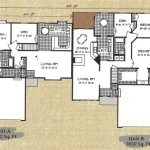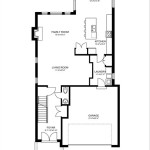How to Choose a House Plan: Essential Considerations for Your Dream Home
Building a custom home is an exciting and life-changing endeavor. One of the most important decisions you'll make during this process is selecting the perfect house plan that aligns with your lifestyle, needs, and budget. Navigating the vast array of options can be overwhelming, but by considering these essential aspects, you can make an informed choice that will result in a home you'll love for years to come.
1. Number of Bedrooms and Bathrooms
Determine the number of bedrooms and bathrooms that will comfortably accommodate your family's current and future needs. Consider the ages of your children, potential guests, and any accessibility requirements. Plan for adequate closet and storage space in each bedroom.
2. Living Spaces and Flow
Decide on the size and layout of the living spaces, ensuring they meet your family's needs for socializing, entertaining, and everyday living. Consider the flow between rooms, ensuring smooth transitions and natural daylighting. Open-concept living areas are popular, allowing for a spacious feel and easy movement.
3. Kitchen Functionality
The kitchen is the heart of the home. Plan for ample counter space, storage, and appliances that meet your cooking and storage requirements. Consider the placement of the kitchen in relation to the living areas and outdoor spaces for easy access and entertaining.
4. Outdoor Living
How you want to enjoy your outdoor space is an important factor to consider. Plan for a patio, deck, or other outdoor living areas that suit your lifestyle. Think about the orientation of your home to take advantage of natural light and views.
5. Energy Efficiency and Sustainability
Choosing an energy-efficient house plan can significantly reduce your utility bills and impact on the environment. Look for features such as high-performance windows, insulation, and energy-saving appliances. Consider incorporating renewable energy sources like solar panels to further reduce your carbon footprint.
6. Site Considerations
The location of your building lot and its topography will influence the house plan you choose. Consider the slope, orientation, and soil conditions to determine the best placement of the home. A sloping lot may require a split-level or walkout basement design, while a flat lot provides greater flexibility.
7. Professional Expertise
Consulting with an architect or home designer can help you refine your ideas and ensure your house plan meets your specific needs and building codes. They can provide valuable insights into space planning, materials, and construction techniques.
8. Budgetary Constraints
Establish a realistic budget before selecting a house plan. Consider not only the construction costs but also ongoing expenses such as property taxes, insurance, and maintenance. The size, complexity, and materials used in the plan will directly impact the overall cost.

How To Choose A House Plan Cheyenne S From The Hartland

How To Choose A House Plan Cheyenne S From The Hartland

How To Choose A House Plan Everything Know

Home Designs For Your Block S Orientation Geelong Homes

How To Choose The Best Floor Plan For Your Family

How To Choose A House Plan Cheyenne S From The Hartland

How To Choose A Floor Plan For New House Of Watkins

How To Choose House Plan Blueprints Icontainerhome Com

How To Choose The Perfect Floor Plan For Your New Home G J Gardner Homes

How To Choose A House Plan When Building New Home Msc Enterprises Llc

